What’s behind Geneva’s immigration influx?
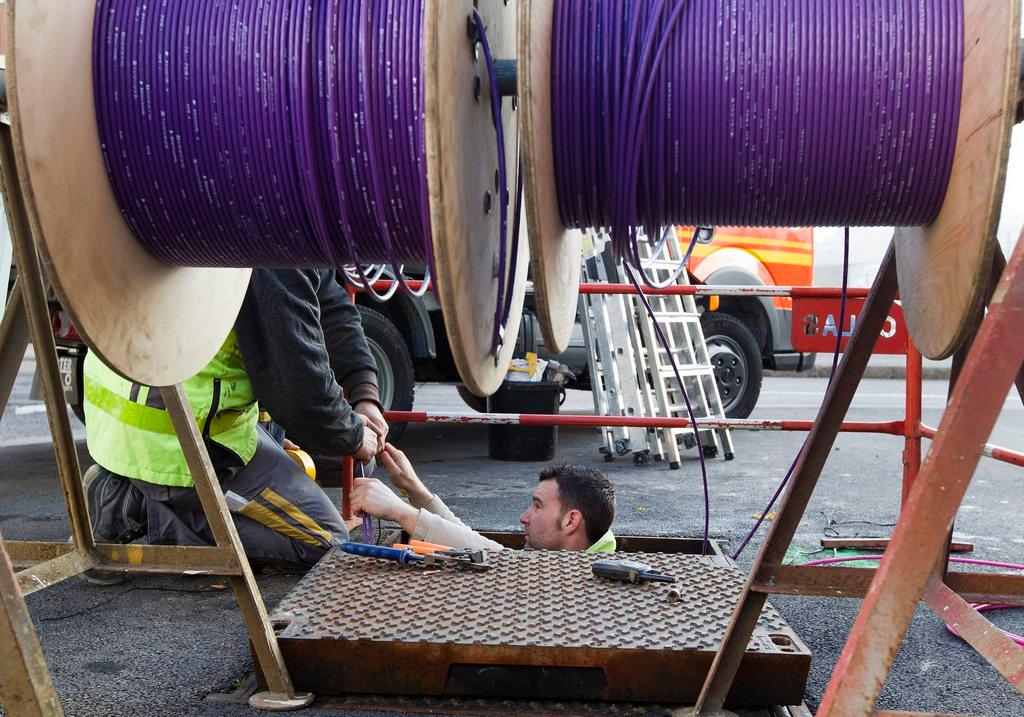
Around 8,300 new residents settled in Geneva in 2014 mainly to work – its largest net population rise since the 1960s. Who are they and what’s driving them here? swissinfo.ch talks to some of the new arrivals to get their story.
“I can earn three times the amount I earn in France,” declared Sebastien*, a 20-year-old from France, who has just started a full-time job as an electronics sales assistant in the western Swiss city.
“I had job interviews in Geneva and in France, but in Geneva it’s all about the quality of life and the salary. You work a bit more but it’s worth it.”
A recent reportExternal link by the State Secretariat for Economic Affairs (SECO) confirmed that the strong Swiss franc has attracted foreign workers wanting to cash in on the currency’s purchasing power.
It found a rise in the number of workers like Sebastien commuting into Switzerland’s border regions from neighbouring countries. Foreign commuters make up nearly a fifth of the workforce in border cities Geneva and Basel, and more than a quarter in the Italian-speaking southern canton of Ticino.
In the first half of 2015, Switzerland had a net gain of more than 38,000 foreigners who became permanent residents. The country’s population of 8.2 million included nearly 2 million foreigners as of the end of June, the justice ministry’s migration secretariat reported. Nations that contributed the most to the influx were Italy, Germany, Portugal, France and Kosovo.
Some 68% of foreigners living permanently in Switzerland are from the European Union and free-trade affiliated nations of Iceland, Liechtenstein and Norway, about the same as a year ago. Between January and June, about 76,000 citizens from those European nations came to Switzerland to work, some using short-term residence permits.
Last year Switzerland’s net immigration stood at 73,000 people, slightly down on the average of the past six years. Those who came to Switzerland to settle or commuted to work were mainly skilled foreign workers and their families from eurozone economies hit hardest by the bloc’s long-running economic crisis.
Among the 26 cantons, Geneva registered the biggest net rise in its population since the 1960s. Of the 8,334 new residents, 21% were from France, followed by Portugal (9%), Italy (8%), then Spain and Britain.
Nationally, more than 60% of residence permits for people from the EU and European Free Trade Association (EFTA) countries went to those coming to work. In recent years Switzerland’s economy has performed relatively well and its labour market has been stable although the franc’s surge is expected to hit economic growth and jobs.
At a presentation of the Geneva figures in June, economics minister Pierre Maudet said the population increase confirmed the canton’s “attractiveness and economic dynamism”.
Good job prospects and high wages recently brought Ben*, a British IT specialist, to Geneva. Although IT jobs in banking have picked up in the city of London since 2013 and there are now more interesting posts, “there are better opportunities here in Geneva in terms of salary and I found a good company,” according to Ben, who moved in April to start a new job at an asset management firm.
The economy, strong franc and job market are obvious pull factors that have influenced the influx of foreign workers. Yet the Banque Cantonale Genevoise’s latest economic forecasts for Geneva for the 2015-16 period predict sluggish growth (0.7% of gross domestic product for 2015 and 0.8% for 2016) compared with the rest of the country (0.9% and 1.3%). Unemployment is also higher (5.4% in Geneva versus 3.4% nationally); this compares with an average of 9.7% in the EU.
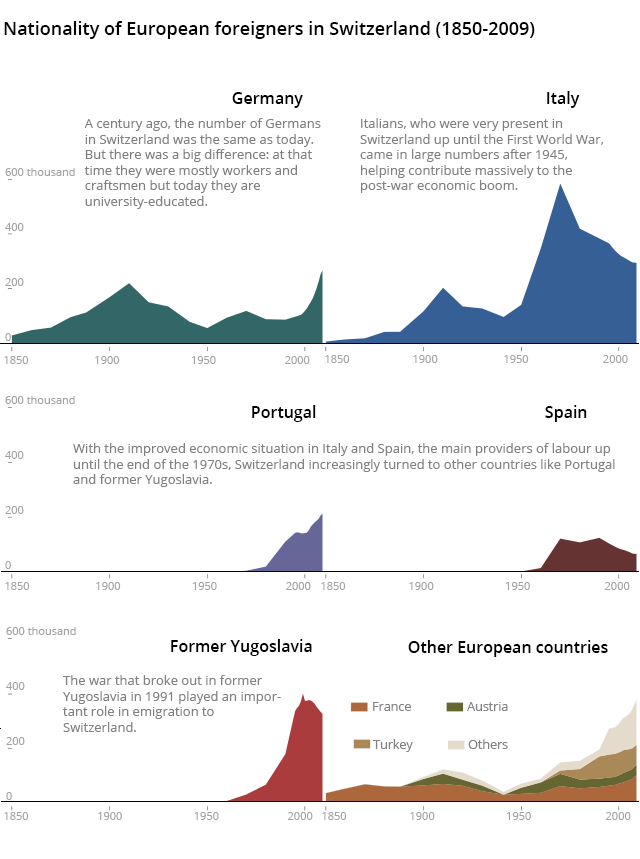
Rising numbers of foreign immigrants have stoked an increasingly vocal backlash in Switzerland in recent years, with concerns over salary levels undercutting, moonlighting and pressures on housing, transport and infrastructure. In February of last year, voters approved an initiative that called for unspecified restrictions on the number of foreign workers coming into Switzerland.
Bernard Gut, the director of the Geneva cantonal population and migration office, said paradoxically a link can be made between the recent population increase in Geneva and last year’s successful referendum.
“Rather than an increase in the number of new arrivals, like we saw in 2003 when the free movement of people accord entered into effect, I think the higher figure can be explained by a reduction in the number of people actually leaving the canton in 2014,” he said.
Philippe Wanner, a professor of demographics at Geneva University, agreed.
“One consequence of the February 9, 2014 vote aimed at limiting immigration is that people living in Geneva who wanted to settle in neighbouring France abandoned the idea out of fear of not being able to come back when any law or changes come into effect,” he said.
Another adverse effect of this initiative, which is due to be implemented in 2017, is that immigrants planning to move to Switzerland have taken the step early, he added.
Economic arguments were high on Toni’s* list when the young Italian chef decided to move to Geneva last year to set up a restaurant offering Mediterranean cuisine at “reasonable prices”. But they were not the only ones.
“I like places where things work properly,” he said. “In Dubai where I was before it’s much more of a headache to set up a business. You waste lots of time and effort on bureaucracy and there are obligations like having local partners. I’m the kind of guy who breaks the rules. But I love the punctuality and strictness here. They do things properly for the population without any monkey business. That’s why I hate Italy.”
But it has not all been a bed of roses. “Housing is a big frustration,” Ben said. “I’m currently staying with a friend of a friend while looking for a flat. But the choice of one-bedroom apartments in the CHF2,000-3,000 range is appalling. They are all cramped and low quality.”
Brakes on growth
Question marks hang over the impending quotas on foreign workers in Switzerland. The border regions are hoping the federal authorities will listen to their arguments for a differentiated approach that meets their specific economic needs.
“The thing is, politicians have been unable to put the brakes on immigration,” said Wanner. “When Germany and France tried to close their borders during the oil crisis of 1974-75 it just led to a rise in illegal immigration. The question is how far are Swiss politicians prepared to accept the associated political and social risks if they do that?”
While the local population has risen steadily over the past few years, ultimately Geneva’s lack of housing could act as a brake on future growth, Wanner went on.
“Geneva is one of the few Swiss cantons where land to build on or square metres of housing evolves slower than demographic growth,” he said. “New housing is not very frequent in Geneva. There are one or two projects but they have dragged on. Demographic growth in Geneva is therefore likely to slow down over the next decade while increasing in neighbouring regions.”
*names changed
Swiss salaries
Swiss salaries are among the highest in the world, but the cost of living also is among the highest in the world. No statutory minimum wage exists in Switzerland, although some minimum salaries are set under labour agreements for hotel work, catering and other specific areas.
The most recent data from the Federal Statistical Office show that more than 30% of men and almost 15% of women who work full time in Switzerland earn CHF104,001 or more a year. Twenty-five percent of men and almost 21% of women who work full time earn CHF78,001 to 104,000 a year.
As is done in the United States, gross salary in Switzerland is negotiated before a contract is signed and it represents the amount of money to be earned before deduction of sums for compulsory social contributions such as old-age, disability and unemployment insurance and pension. A worker can expect a net salary to be 13-20% lower. Non EU/EFTA people with a B permit will also have income tax withheld at source, further reducing take-home pay.

In compliance with the JTI standards
More: SWI swissinfo.ch certified by the Journalism Trust Initiative

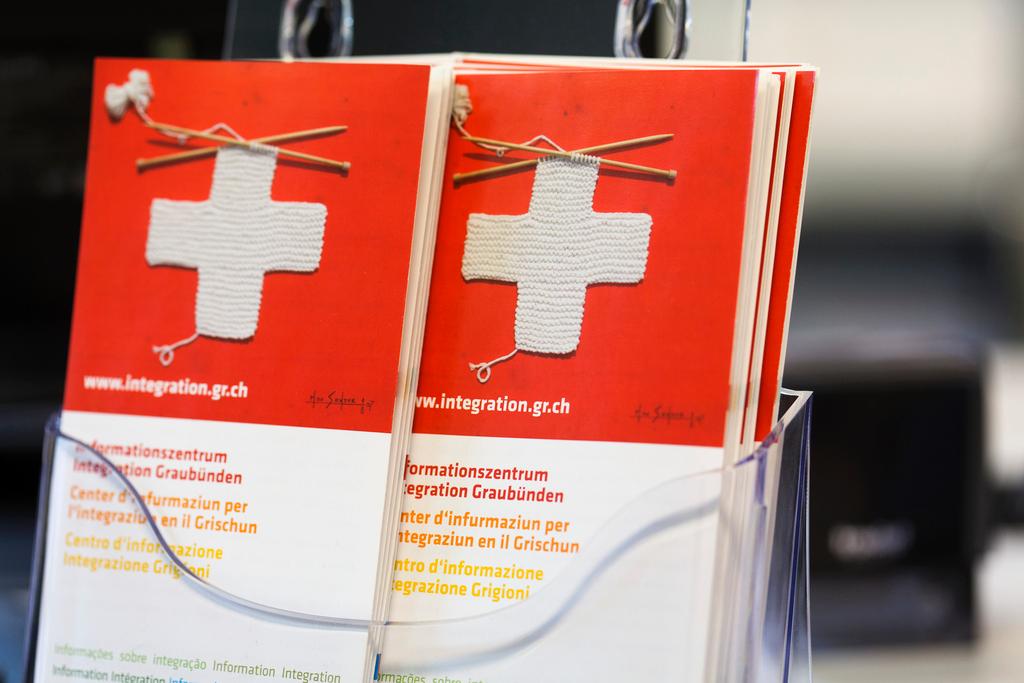
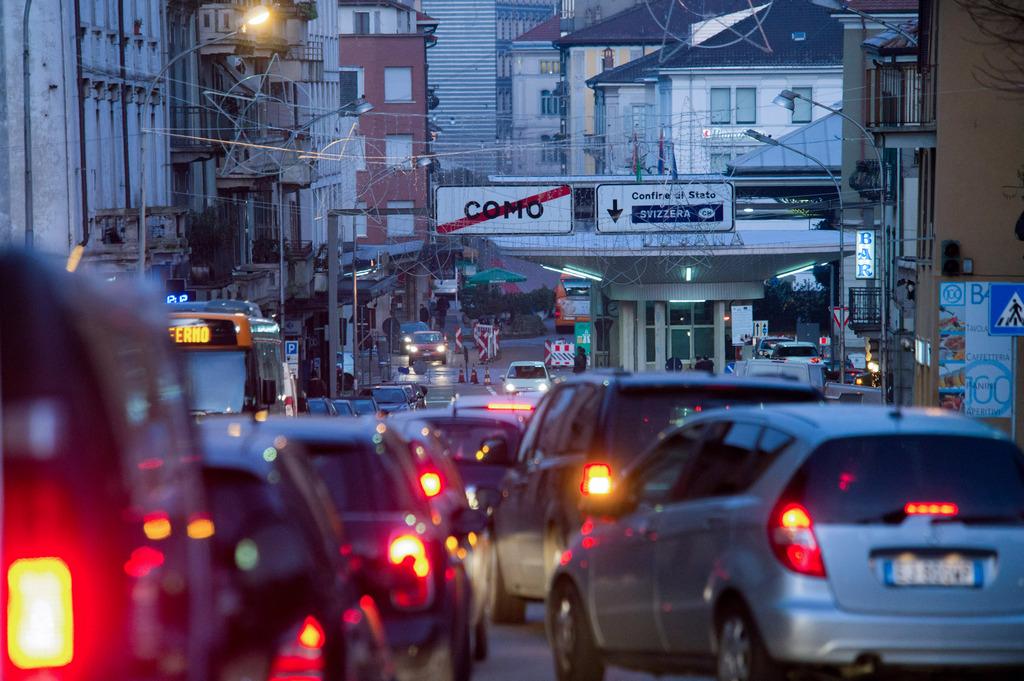
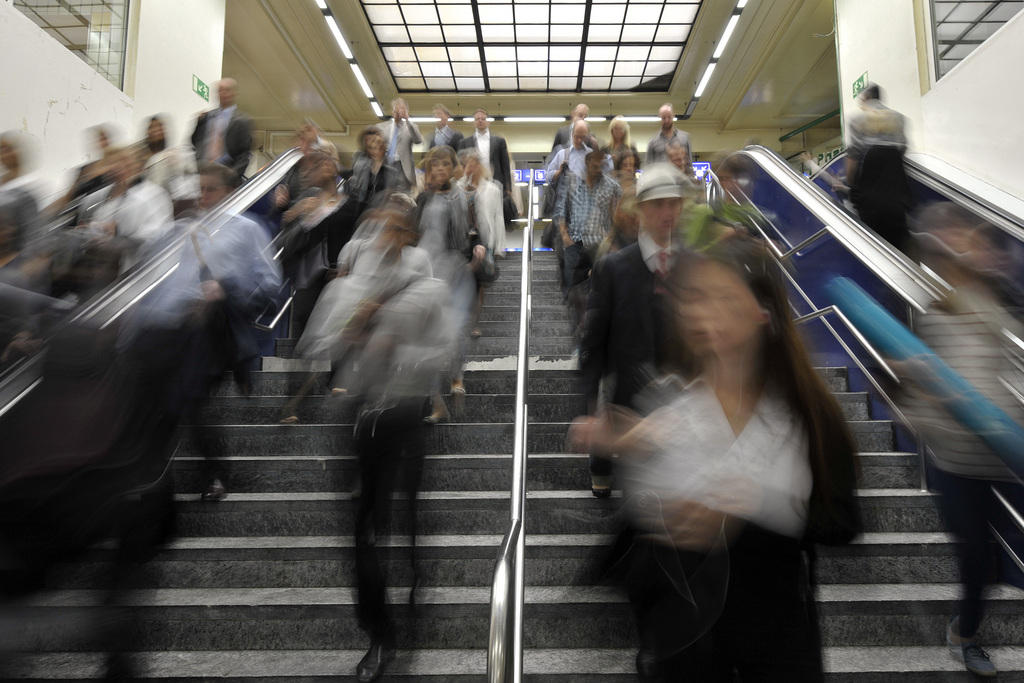
You can find an overview of ongoing debates with our journalists here. Please join us!
If you want to start a conversation about a topic raised in this article or want to report factual errors, email us at english@swissinfo.ch.